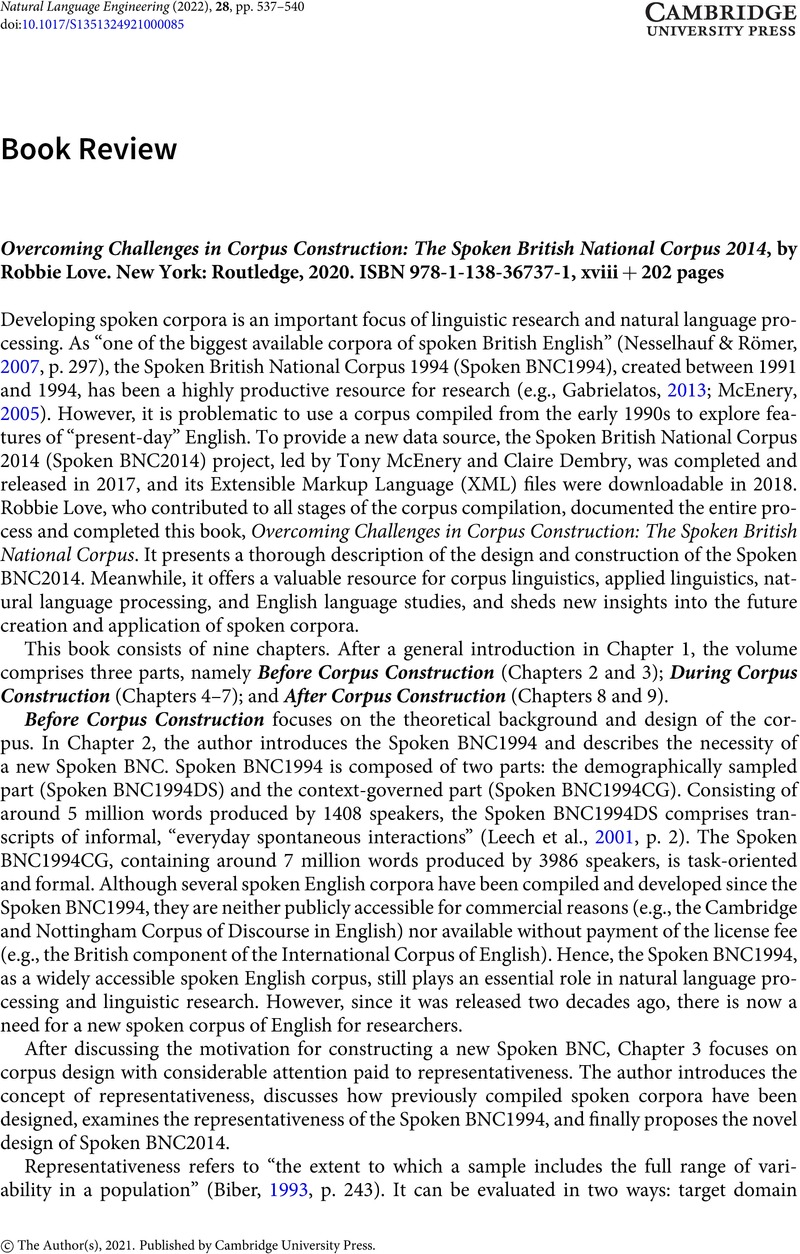Gabrielatos, C. (
2013). If-conditionals in ICLE and the BNC: A success story for teaching or learning? In
Granger, S.,
Gilquin, G. &
Meunier, F. (eds.)
Twenty Years of Learner Corpus Research: Looking Back, Moving Ahead. pp.
155–
166.
Louvain-la-Neuve, Belgium:
Presses Universitaires de Louvain.
Google Scholar 